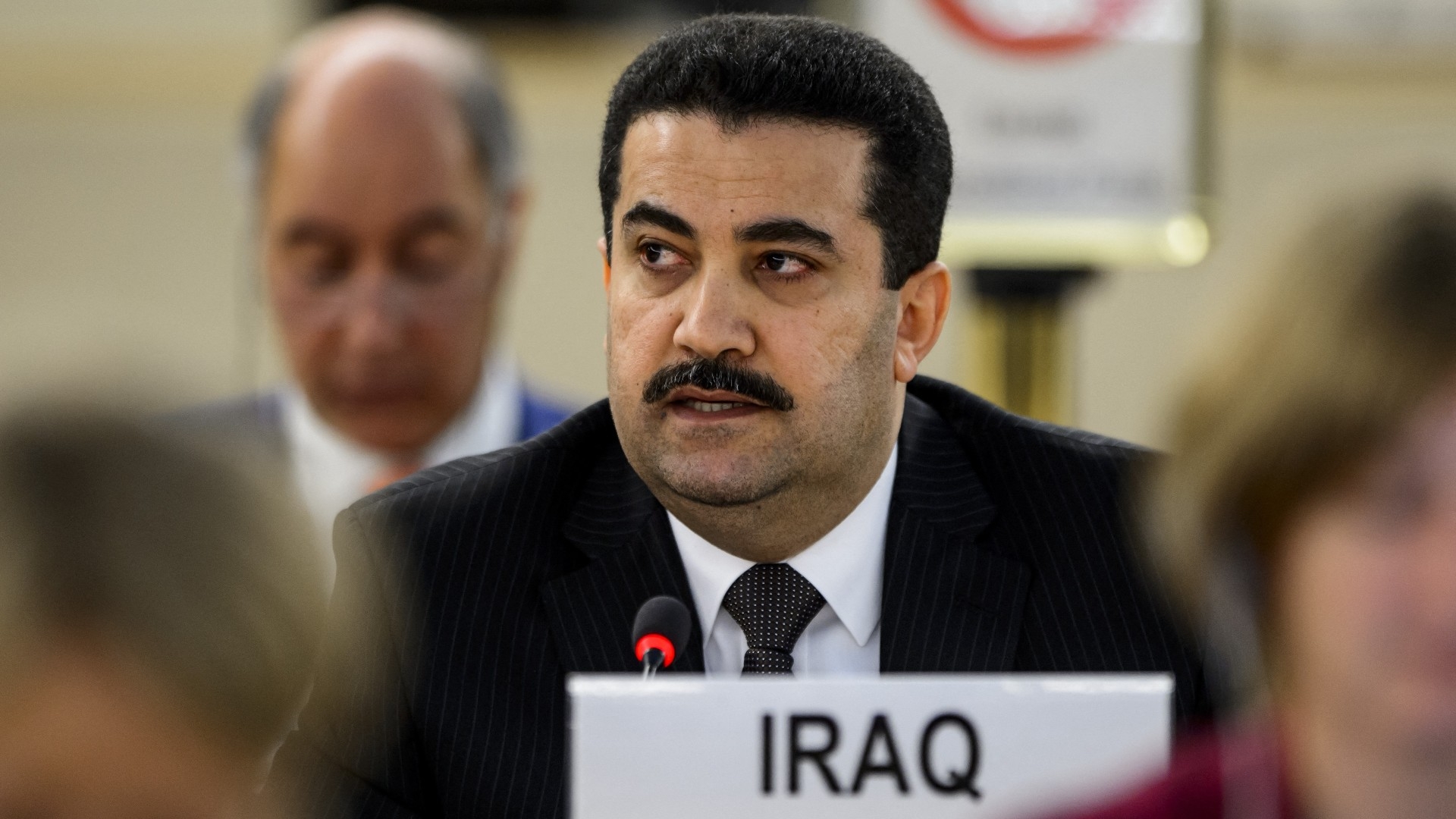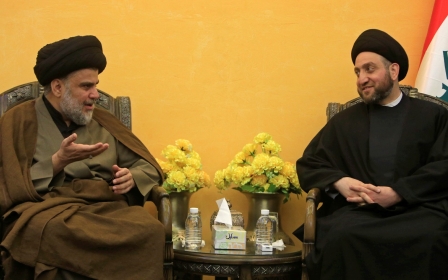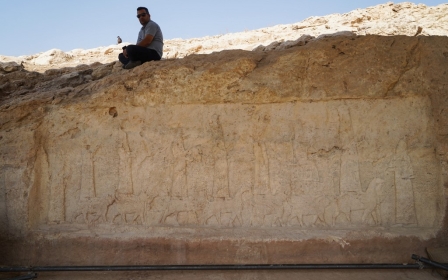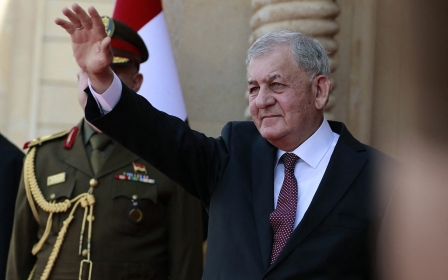Mohammed Shia al-Sudani: Who is Iraq's new prime minister?

Mohammed Shia al-Sudani has taken office as Iraq’s new prime minister, ending a year of political deadlock.
Iraqi MPs voted in favour of a new government headed by Sudani on Thursday, approving the new premier’s 21 choices for cabinet ministers.
In a speech to parliament, Sudani pledged to fight corruption, reform the economy and improve public services.
"The epidemic of corruption that has affected all aspects of life is more deadly than the corona pandemic and has been the cause of many economic problems, weakening the state's authority, increasing poverty, unemployment, and poor public services," he told lawmakers ahead of the vote.
An establishment figure in Iraqi politics, Sudani spent many years in civil and national government roles, with instability and gridlock leading to his eventual rise to prime minister.
New MEE newsletter: Jerusalem Dispatch
Sign up to get the latest insights and analysis on Israel-Palestine, alongside Turkey Unpacked and other MEE newsletters
Former minister
Born in 1970, Sudani was around 10 when his father was executed by authorities under Saddam Hussein. He had been charged with belonging to the Iran-backed Islamic Dawa party and opposing the government.
In his youth, Sudani joined a failed Shia uprising in 1991 following the end of the first Gulf war, which was violently repressed by Saddam's forces. He opted to stay in the country, at a time when many government critics fled abroad.
He went on to study agricultural science at the University of Baghdad, before gaining a master's degree in project management.
When the 2003 US-led invasion removed Saddam from power, Sudani launched his career in politics. In 2004, he became the mayor of Amarah, a city in southeastern Iraq in his home province of Maysan, before becoming the governor of the province itself.
He entered Iraq's national political scene in 2010, and was appointed to prominent roles by former prime ministers Nouri al-Maliki and Haider al-Abadi under the Islamic Dawa party banner. He served as human rights minister between 2010 and 2014, and minister of labour and social affairs between 2014 and 2018.
Sadr rejection
In 2020, following widespread anti-government protests, Sudani resigned from the Islamic Dawa party. Some critics believe it was an attempt to distance himself from previous governments and further his career.
The youth-led protest movement was met with a brutal crackdown by Iraqi security forces, resulting in 600 deaths. Thousands more were wounded. Adel Abdul Mahdi was forced to resign as prime minister, with Mustafa al-Kadhimi taking over as caretaker premier.
In subsequent elections, which took place in October 2021, influential Shia cleric Muqtada al-Sadr’s movement won 73 seats, making it the largest bloc in parliament. However, after months of stalemate and failure to form a coalition government, the Sadrist bloc quit their seats in June.
Sudani belongs to the pro-Iran Shia Coordination Framework, now the largest bloc since Sadr’s withdrawal.
An attempt by the coalition to propose Sudani as prime minister in July led to the occupation of parliament in Baghdad's fortified Green Zone by Sadr supporters, resulting in days of violence that left dozens dead.
Protesters gathered outside the main gate of the Green Zone on Thursday to rally against Sudani, where they were faced by a strong security presence.
Sadr and his supporters have strongly rejected Sudani’s leadership, believing him to be a continuation of Maliki, a longtime foe whom they accuse of corruption and mismanagement.
Middle East Eye delivers independent and unrivalled coverage and analysis of the Middle East, North Africa and beyond. To learn more about republishing this content and the associated fees, please fill out this form. More about MEE can be found here.




